What’s the difference between engineering in school vs. real-world engineering?
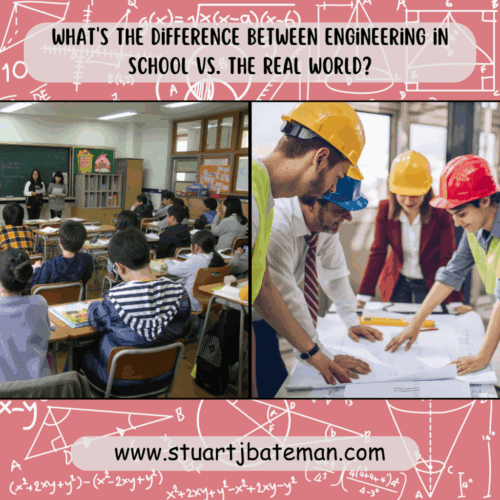
It’s bred in me that I only see real work as getting stuck in and getting your hands dirty.
Guy Martin
There are several key differences between studying engineering in school and practising it in the real world. In school, the answer is usually known, and your teacher will guide you toward it. In real-world engineering, while you’ll have training, experience, and structured methods to draw upon, there often isn’t a clear-cut answer—you have to discover or develop it yourself. It’s a shift from solving predefined problems to working in complex, uncertain, and often constrained environments.
This blog post is part of a larger series on becoming an engineer, if you’re thinking about a career in engineering start with “Should I become an Engineer” or head over to – Careers.
In this blog post, I’ll highlight some of the most important differences between academic engineering and real-world engineering, including:
- Experience and intuition – How time in the field sharpens your judgement
- The Dunning-Kruger effect – Why the more you learn, the more you realise how little you know
- Budgets and business constraints – How commercial pressures shape engineering decisions
- Teamwork and collaboration – What it’s really like to work in cross-functional, diverse teams
- Personal development – Taking ownership of your career and continuous learning
- Safety and responsibility – Being accountable for the consequences of your designs
- Real-world tools and technologies – Working with powerful, often hazardous equipment beyond the classroom
Let’s explore each of these in more detail.
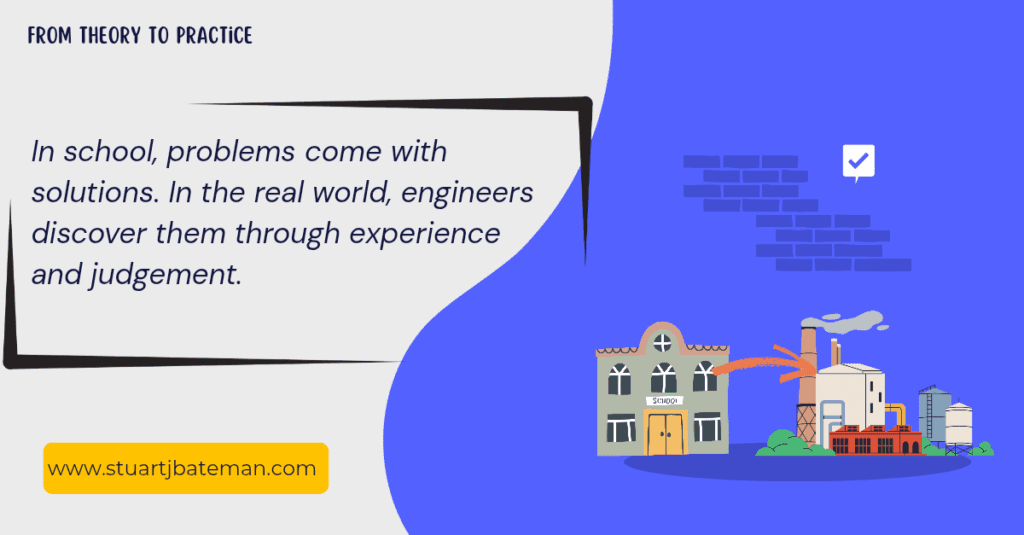
Experience and Intuition
In school, you learn to apply principles to controlled, theoretical problems. In real-world engineering, those problems are messier—often lacking complete data, clear requirements, or a known outcome. Experience allows engineers to approach ambiguity with confidence.
With time, you develop engineering intuition. You start to see patterns, understand which trade-offs matter, and make informed decisions under pressure. While school gives you the basics, experience teaches you what really works.
The Dunning-Kruger Effect in Real-World engineering
In education, especially early on, it’s easy to feel like you have a solid grasp of the subject. But that’s often a case of “you don’t know what you don’t know.” You’re only exposed to a subset of the discipline, filtered through the lens of your syllabus.
In real-world engineering, the scope broadens significantly. You realise that even seasoned professionals continue learning throughout their careers. Specialising helps, but the vastness of engineering means there’s always more to uncover.
Budgets and Business Constraints in Real-World engineering
In school, your design project is a learning tool. Cost and feasibility are secondary. In real-world engineering, they are critical. Your project must be delivered on time, within budget, and aligned with business objectives.
This means your ideal solution may not be acceptable if it’s too expensive, time-consuming, or complex. Engineering becomes a balancing act—solving technical challenges while navigating financial and commercial pressures.
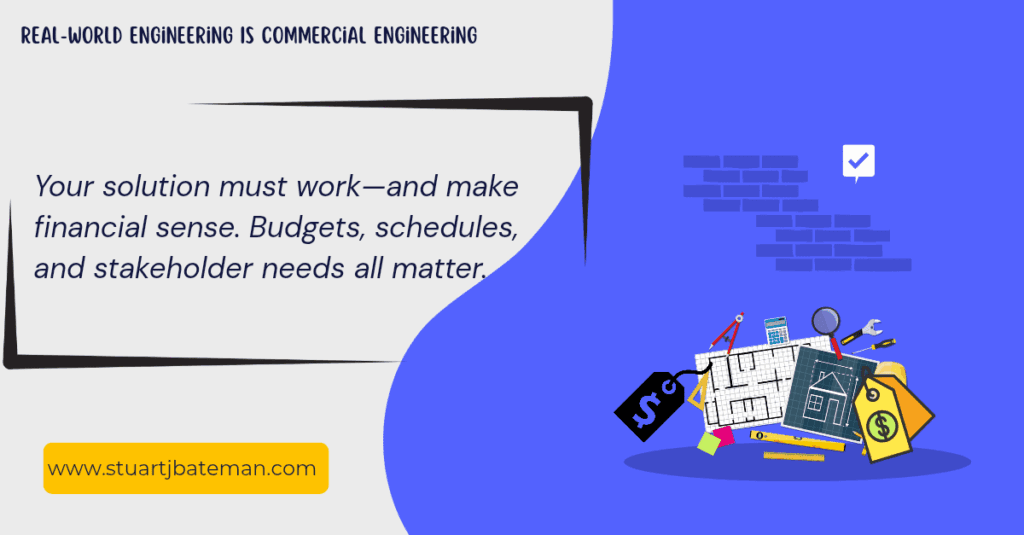
Teamwork and Collaboration
Student projects often involve working with peers from your course. In industry, your team could include technicians, senior engineers, commercial staff, and suppliers from around the world.
Real-world engineering demands strong communication and adaptability. You may work across cultures and time zones. Managing stakeholder expectations, resolving misunderstandings, and leading by influence all become part of the job.
Personal Development
Your academic journey is structured—modules are chosen for you. Once you enter the workplace, you are responsible for your development. You must assess your own skills, set career goals, and pursue relevant experience.
Want to move into project leadership, technical consultancy, or systems engineering? You’ll need to plan your development path accordingly. Performing a personal SWOT analysis and actively seeking opportunities is key in real-world engineering.
Safety and Responsibility
At school, your project is reviewed by staff to ensure it’s safe and appropriate. In real-world engineering, you are responsible for your own safety—and that of your colleagues, end users, and the environment.
Whether designing a structure, process, or product, you must consider risk, compliance, and liability. This accountability is one of the biggest shifts from education to industry and underscores the need for diligence and professional ethics.
Real-World Tools and Technologies
Most classrooms don’t include welding equipment, chemical plants, or robotic arms. But in real-world engineering, these tools—and many more—are part of everyday work. You may need specialist training or licences to work with them.
Additionally, the technologies evolve rapidly. From automation to additive manufacturing, staying current requires continuous learning. What you learned in school provides a foundation, but it’s far from the full picture.
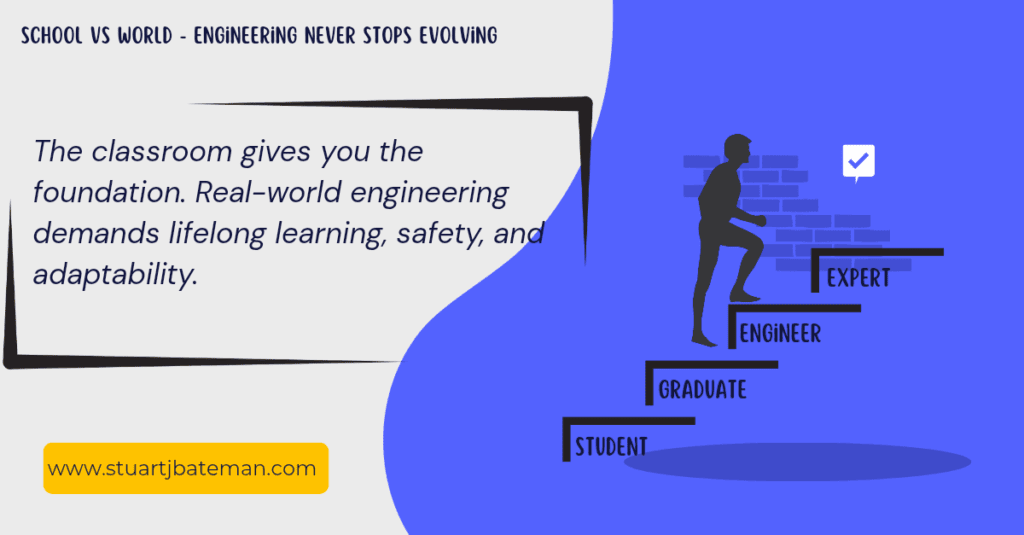
My Thoughts on Real-World engineering
Real-world engineering introduces challenges and responsibilities that go far beyond what’s covered in school. While academic study builds theoretical knowledge and problem-solving skills, it’s only the beginning of your journey. Commercial realities, collaboration, continuous learning, and accountability all become central to your success.
Where to go next
If you’re a student or recent graduate, connect with professionals and ask them about their real-world engineering experience. If you’re already working in the industry, consider mentoring a young engineer or sharing your insights to help bridge the gap between school and the workplace.
What was the biggest difference you noticed when you transitioned from school to real-world engineering?
Resources (Internals) – Careers
Check out these interviews I conducted with 10 engineers you can find and chat to on LinkedIn:
- Danny Murphy – Automation Engineer
- Kyle Shropshire – Design Engineer
- Chris Stasiuk – Engineering Coach
- Bug Meehan – Design Engineer
- John McClure – Energy Engineer
And also check out these posts related to this topic:


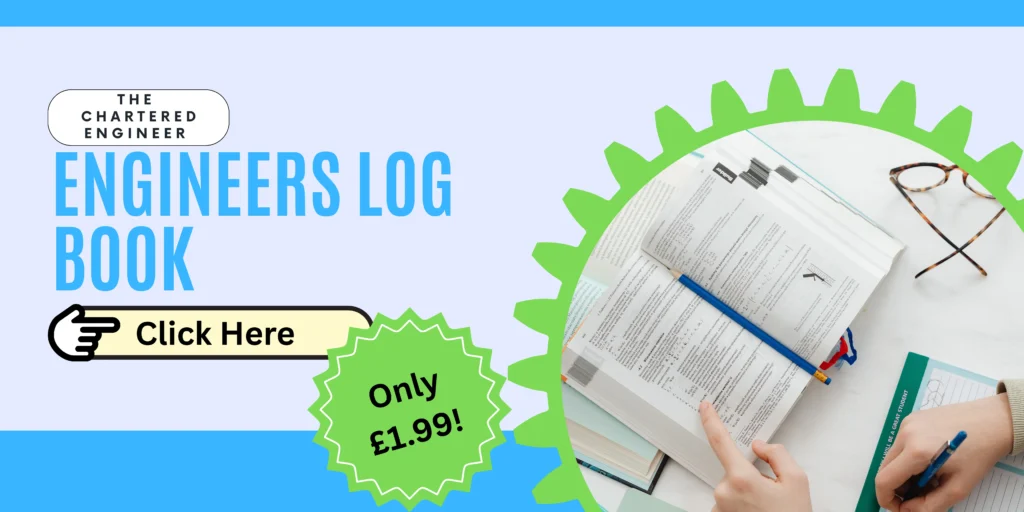
What are your thoughts? Have I covered everything or is there more you know and would like to share?
I’m always learning and improving this site and my blogs, so please feel free to get in touch with me via LinkedIn or this site to discuss any topics I have covered.
If you’re having trouble finding ways to progress check out these sites filled with free learning tools:


Discover more from The Chartered Engineer
Subscribe to get the latest posts sent to your email.